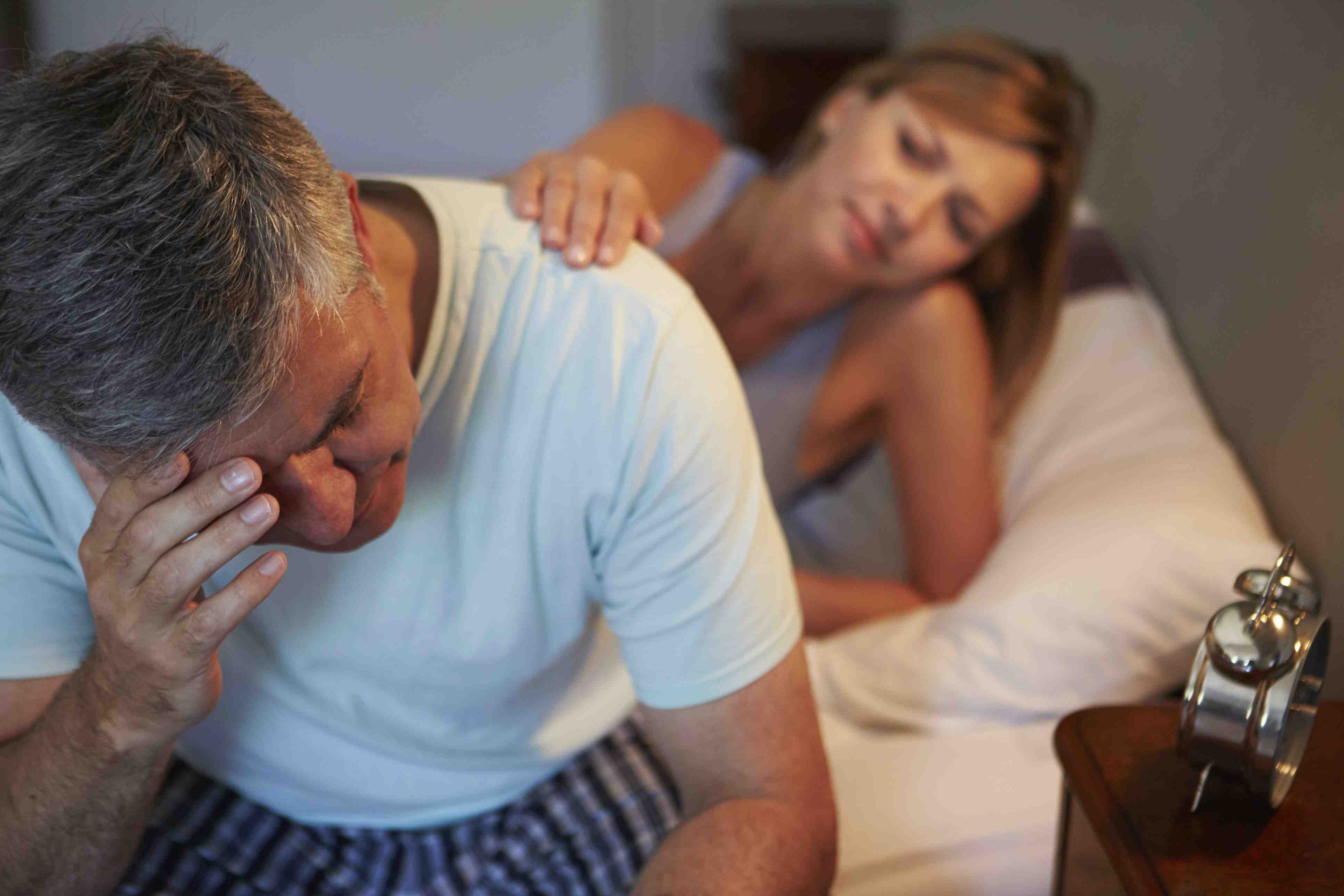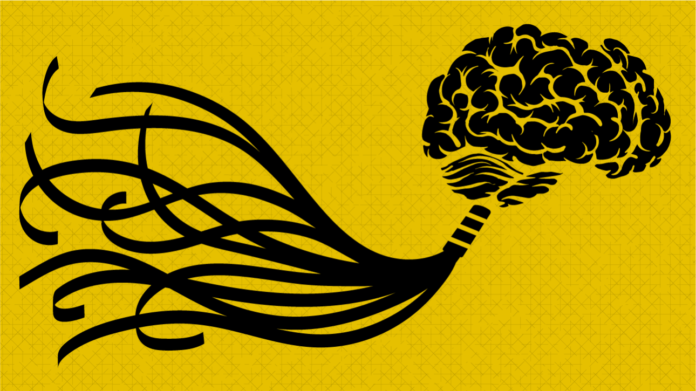
Question
Lately I have been experiencing difficulties getting or maintaining an erection. What can I do?
Answer
Erections can be affected by physical factors, such as high blood pressure or diabetes, as well as by emotional factors; often stress alone can be the culprit. To help determine the cause you should discuss the problem with a medical doctor familiar with your health history. While there are many new drugs like Viagra to treat impotence, there are also techniques where a drug, like prostaglandin-E, is actually injected into the penis to act directly on the blood vessels in the spongy part of the organ. With most medications, there is a time period needed for the drug to take effect, generally 10 minutes to one hour. There are also devices that can be implanted in the shaft of the penis to create erections. All of these remedies must be properly administered under a physician’s care. Emotional stress, anger, sadness, fear, or performance anxiety can all make an erection go away – or never happen. If not medically influenced it may be that you are emotionally troubled about a situation which despite heroic efforts by your partner to arouse you, fail to turn you on. Try to relax. Communicate with your partner that it isn’t her fault. Relax and the fire may return. If it becomes an ongoing problem, seek professional help. Here are four causes of erectile dysfunction and the most effective treatment for each. Virtually every man experiences lack of desire, erectile dysfunction, or premature ejaculation at some point or the other in his life. Such incidents can be related to:
- Stress (anxiety)
- High blood pressure (medication)
- Drugs (steroids)
- Psychological (insecurity in a relationship, self, or from emotional or financial loss).
Click here for Male Sexuality Course details at Loveology University
The erectile dysfunction is often temporary, and most women are understanding of the occasional failures a man may experience and do not make a big deal out of it. However, some men respond to episodes of failure in a manner that leads from performance anxiety to anticipatory anxiety, and the problem becomes chronic rather than transitory. Sex therapists and counselors are neither psychologists nor neurologists, but must be familiar enough with both of these sciences in order to recognize a problem source. However, clients of sex therapists usually come out of a need for direct consultation and treatment, and it is abundantly clear which penile dysfunctions the therapists will be most frequently confronted with, as well as which treatments will be most effective. Erectile dysfunction occurs in men of all ages, but with the greatest frequency in older men. It can be an early warning sign of diabetes, prostate cancer, or vascular disease so it is advisable for a man to see his physician for annual check-ups for an accurate diagnosis. In some men, erectile dysfunction can be caused by anxiety. Anxiety Anxiety manifests itself commonly as premature ejaculation. The American Psychiatric Association Diagnostic and Statistical Manual (DSM) defines this as “persistent recurrent ejaculation with minimal sexual stimulation before, on, or shortly after penetration, and before the person wishes it.” In considering a diagnosis, the manual adds the physician “must take into account factors that affect duration of the excitement phase leading up to orgasm, such as age, novelty of the sexual partner, or situation and frequency of sexual activity.” The following factors are defined:
a. age – when you are younger, you reach orgasm faster.
b. novelty of the sexual partner – with the excitement of a new partner, you ejaculate faster.
c. frequency – when you have sex less often, you ejaculate faster. According to the American Psychiatric Association, three out of ten men are considered premature ejaculators by the Association definition. And, while there are many reasons for premature ejaculation, anxiety is frequently a primary cause. Anxiety creates a problem, and it also maintains it. In addition, anxiety causes the release of adrenaline from the adrenal gland that acts to constrict the blood vessels, including those that lead to the penis. A vicious mind-body circle can be created that turns anxiety into potency problems. Effective treatment for this manifestation of anxiety-caused disorder would include:
a. Practicing masturbation in a relaxed environment, as means of gaining self-control and using a clock to monitor staying power.
b. Use the focus and control on the PC muscle during intercourse. The PC muscle contracts involuntarily during arousal and orgasm. Learning to contract it voluntarily can be a great sexual enhancer, can prolong an erection and delay orgasm.
c. The “Squeeze” technique can delay an imminent orgasm by grasping the penis right below the glans between the thumb and forefinger and squeeze. After a few seconds of squeezing, he can resume stimulation.
d. Using a device called “Control” (physician designed), which is a band that wraps around the entire scrotum prior to arousal. To permit ejaculation, he pulls on the Velcro tab-tail which allows his testicles to rise, releasing semen.
e. The use of a Cock-ring will constrict the veins that would allow blood to drain out of an erection, some men find wearing Cock-rings prolong their erections or even make their erection firmer.
f. A vacuum tumescence device can also be used to increase blood flow to the penis and create an erection in the cylinder which can result in a larger erection than usual.
g. A delay cream such as Sta-Erect can help to control premature ejaculation. By applying the cream on the glans of the penis 10-20 minutes prior to intercourse, it can increase staying power.
High Blood Pressure.
Nearly half of all American men over the age of 50 have high blood pressure. The typical treatment is anti-hypertension medication, which can cause impotence. It can cause a considerable narrowing and hardening of the blood vessels throughout the body, which combined with the onset of age, further diminishes capacity. This then is one cause of impotence induced by medication. The medication lowers the pressure which in turn decreases the flow of blood to the penis. Frequently, this condition is aggravated by the high fat standard American diet (associated with vascular disease, hallmarked by increased calcified cholesterol plagues and narrowing of the blood vessels). The result is a decrease in blood flow to various areas of the body. Interestingly, the coronary arteries feeding the heart are about the same size as the arteries that carry blood to the penis, which may explain why many men with heart disease due to clogged arteries are also impotent. I would advise the client to consult with the physician who prescribed the specific hypertension medication that helped create this problem to see if there is any alternative medication with fewer side effects. The dietary regimen is also something I would strongly suggest a client alter if he had not already done so (after all, more than just his sexual life is at stake). Physically speaking, this should help to alleviate the condition. If the client continues to have persistent erectile problems after being prescribed replacement medication, then it becomes a question of conditioning, and this leads to cause number four which is psychological in origin.
Drugs
For many, pharmaceutical drugs and their side effects may be a matter of life and death. Also, pharmaceutical drugs are not the only drugs with side effects. Street drugs and barbiturates may initially increase the desire for sex, but with habitual use they can decrease a man’s potency. Many young body builders who take steroids experience a tremendous sex drive at the beginning. However, with continued use the normal testosterone produced by the body in the testes is shut off. The ultimate result is shrunken testicles. This leaves an individual with decreased sexual desire, decreased performance, and frequently associated depression. An effective treatment for this disorder would be testosterone. This can be given by pill, skin patch, or injection, all of which can increase sexual desire and which are often prescribed for men with low testosterone blood levels. I would first recommend Vigorex Forte capsules, a homeopathic product containing extract of Avena Sativa and ask the client to monitor his level of sexual desire and staying power. If the client needed more testosterone, I would refer him to the appropriate physician or urologist who might then prescribe the drug Prostaglandin E1 in injection form. This has been most effective for treatment of impotence, and can be self injected with a tiny needle into the penis up to 15 minutes before an erection is desired.
Psychological
There are probably as many different psychological causes for impotence as there are impotent men. Each man has his own internal world with his own attitudes and beliefs about himself, society, women, and relationships, and about what being sexual means. Some psychological sources of erectile dysfunction can be fear of or resentment towards women, or castration complexes. Frequently the origin of these fears are to be found in the client’s childhood, and in adulthood result in imprinted behavior. The increasingly ambiguous line separating the sciences of psychology and neurology has also accounted for some interesting and dramatic changes in perception as to the nature of erectile dysfunctions. Masters and Johnson concluded in their research that 90% of erectile disorders were psychological in origin and that 10% were physiologically based. However, according to recent surveys and current thinking among experts, 80% of impotence can be blamed on primarily physical factors and only 20% on primarily psychological factors. It is to be admitted that these percentile projections are estimates since the identified cases of problems involving erectile dysfunction are significantly less than the actual scope of the total problem. Most men with erectile dysfunction reveal the problem only at a stage when the situation demands treatment. Consequently, Masters and Johnson may still be right in their percentile projections of the total problem, while therapists and others, with diametrically inverted findings, could also be right, as their 80% percentile could be construed to be part of the Masters and Johnson 10%. One must also be aware that as the science of sexology evolves, it recognizes that there is a competitive marriage of sorts between how the neurological system functions and why it functions the way it does, and this “chicken-or-the-egg” conflict remains to be resolved. Neurology is a physiological science that is not unrelated to psychology. A better sex therapist should also refer the client to a psychologist for compatible therapy, but it is nonetheless important for the health of the individual to treat the symptom as well as the source. I would think that role playing within the needs of his imprinted make-up (be that fetishism, infantilism, transvestitism, etc.) would help alleviate the psychological blockage and win good will while the deeper problems were being addressed, and would also help to make the client feel that he or she was not abnormal in respect to the rest of humanity. After discovering the cause of the client’s erectile dysfunction, the treatment would be much the same as that offered to a client suffering from anxiety; stress always being laid on finding which solution will serve him best.









Leave a Reply